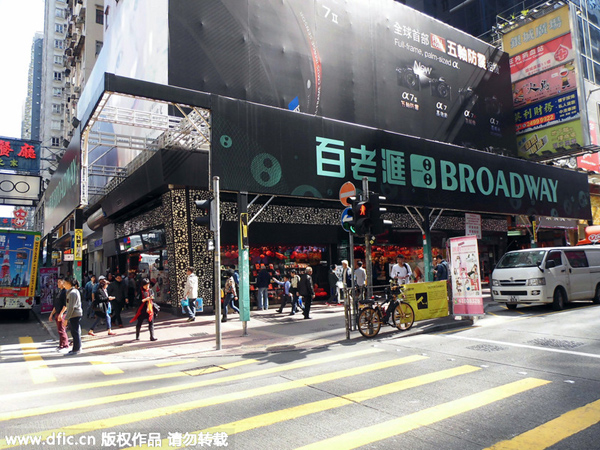 |
|
Photo taken on Jan 21, 2015 shows a commercial street in Hong Kong, a city which has attracted many tourists from the Chinese mainland for its shopping opportunities. [Photo/IC] |
This week the Ministry of Public Security took action to restrict visitors to the Hong Kong Special Administrative Region after the increase in day-trippers and traders buying goods in the city led to weeks of protests. As Shenzhen authorities announced a limit on cross-border trips by the city's residents, Hong Kong Chief Executive Leung Chun-ying issued a warning against parallel traders. Concurrently, the multiple-visit permit will be replaced by a new one-visit-per-week permit.
What will be the effect of the policy change?
"Parallel traders" buy their supplies in Hong Kong, which does not charge a goods and services tax, and then sell them on the mainland in small quantities to avoid paying import duties. The trading focuses mainly on packaged foods, infant products, cosmetics and personal care items, such as shampoo. It is not exactly a luxury business.
One friction point involves Sheung Shui, a town close to Shenzhen, where residents claim that the increase in parallel importers has pushed up retail prices and is causing nuisance. In contrast, the importers argue that their trade benefits Hong Kong's economy and they do have a point.
Will the policy changes reduce the number of parallel traders?
In 2014, Hong Kong received some 47 million visitors from the mainland, which accounted for three out of every four visitors. Day trips accounted for a record 60 percent of the total and contributed to a third of all retail sales in Hong Kong.
But things may be changing.
During the Chinese New Year, the number of visitors fell for the first time in two decades. And during the Tomb Sweeping Day holiday, arrivals from the mainland plunged 14 percent. In 2014, the current multiple-entry scheme drew 14.9 million visitors from the mainland. The new policy could slash their number to 4.6 million a year, that is, by 30 percent. Will Hong Kong's economy suffer as a result of the policy change?
Presumably, the policy targets mainly the "career parallel traders" and won't affect Shenzhen residents who have been granted multiple-entry visas into Hong Kong.

I’ve lived in China for quite a considerable time including my graduate school years, travelled and worked in a few cities and still choose my destination taking into consideration the density of smog or PM2.5 particulate matter in the region.